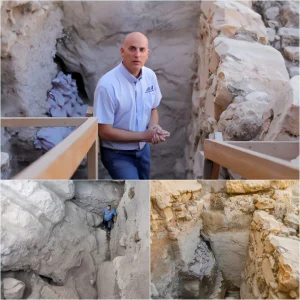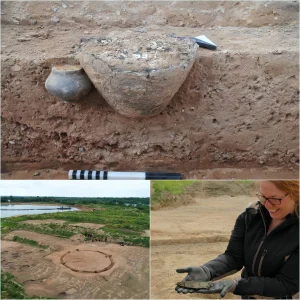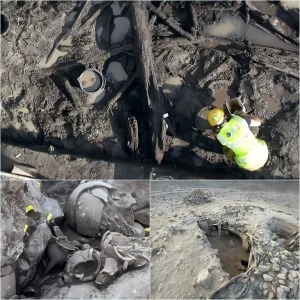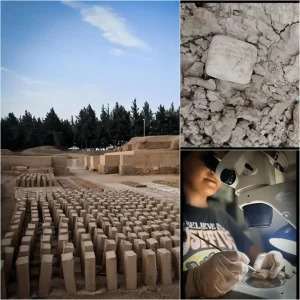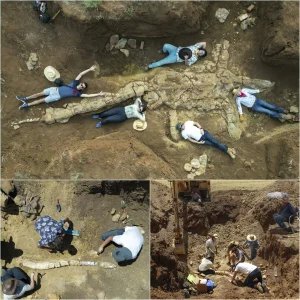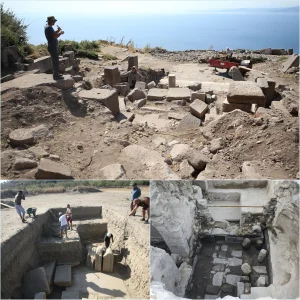Archaeologists have made a significant discovery in Aswan, uncovering more than 30 ancient Egyptian tombs in an ancient city along the Nile. This site, believed to date back to the Greco-Roman period, spans an entire hill and promises to provide valuable insights into the daily life and burial practices of the once-thriving trading port.
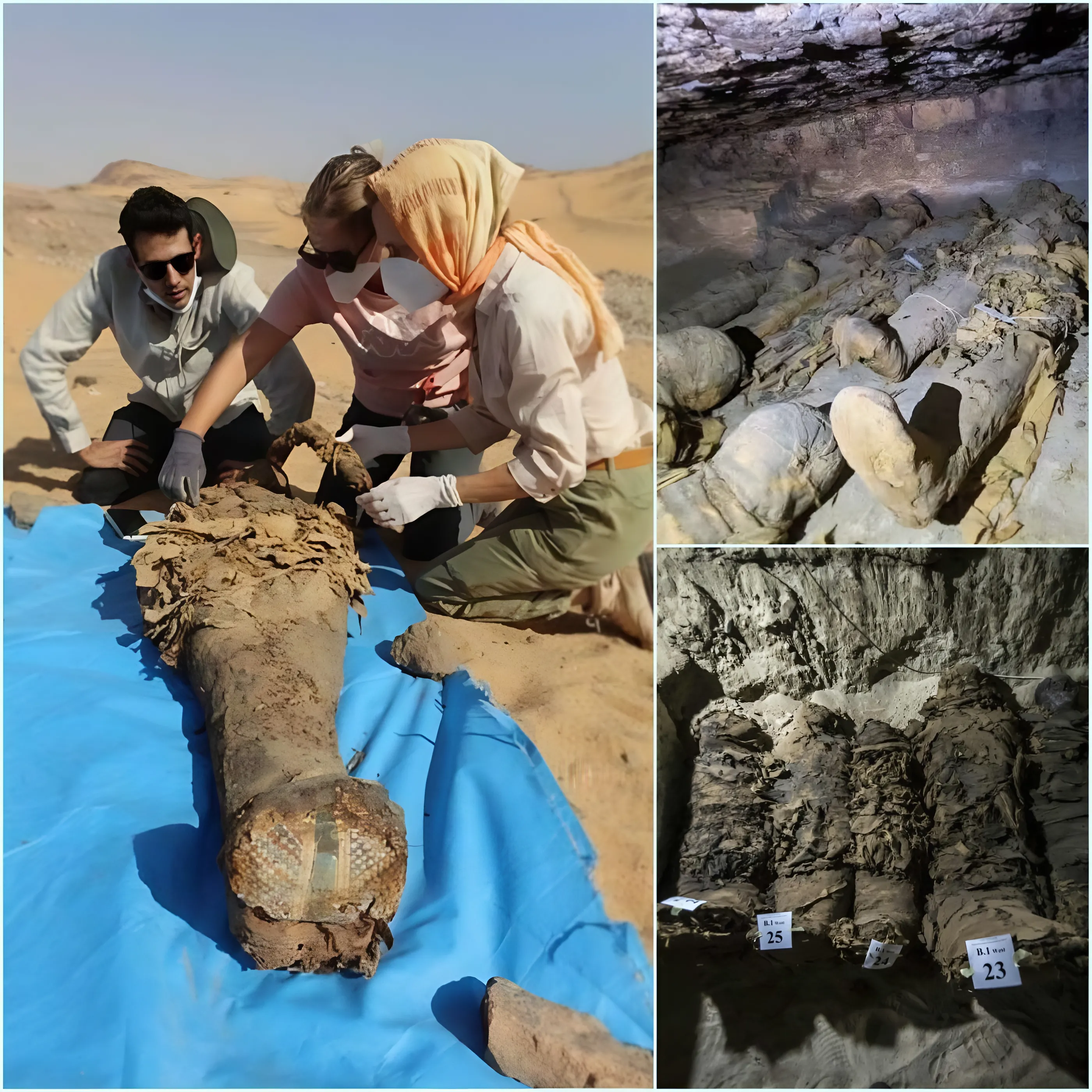
Among the remarkable finds are mummified remains, possibly of families buried together, as well as coffins, clay vessels adorned with detailed wine leaf designs, and cartonnage made from reused papyri or fabric. Additionally, artifacts such as offering tables and ancient oil lamps, likely left by mourners, have been unearthed.
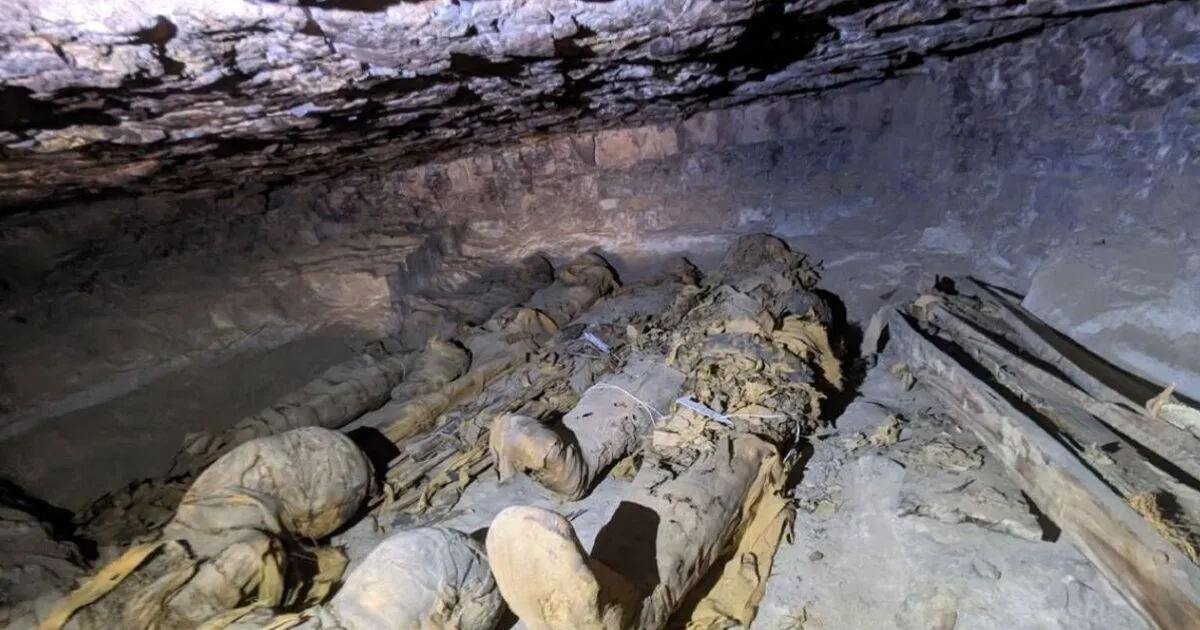
The discovery began with initial findings in 2015 following unauthorized excavations, prompting local archaeologists, under the directive of Egypt’s government, to conduct a thorough survey. The tombs, estimated to have been in use from 332 BC to AD 395, were further explored starting in 2019 by a team of Egyptian and Italian researchers led by Piacentini, following a collaboration initiated by former Minister of Antiquities Khaled el-Enany to uncover additional hidden treasures.
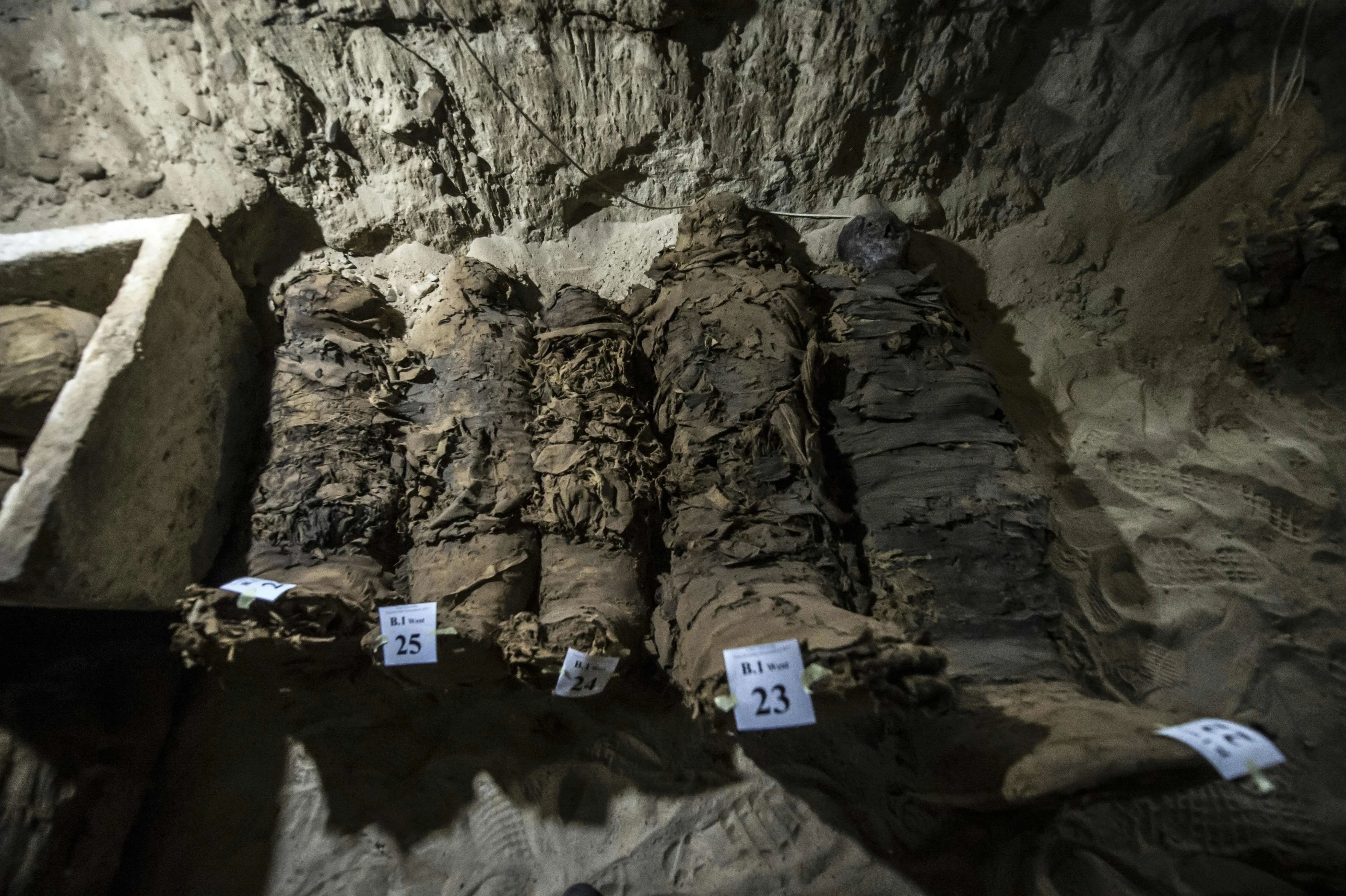
This ongoing excavation holds promise for further revelations about the ancient city’s inhabitants, their customs, and their beliefs, enriching our understanding of Egypt’s cultural history.
